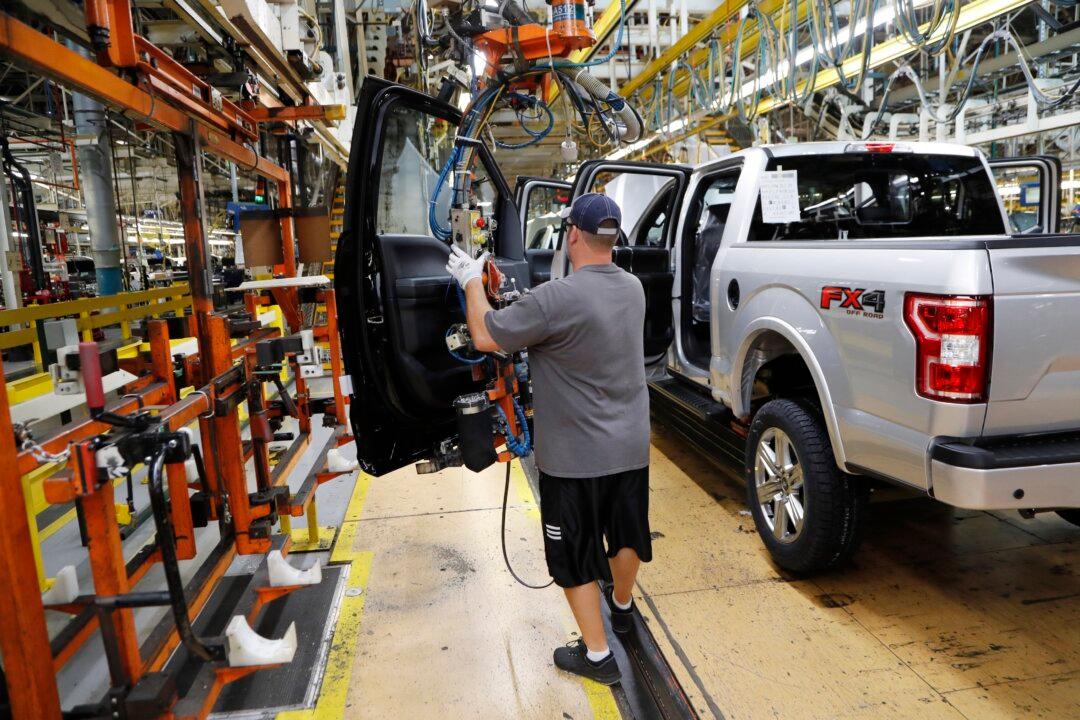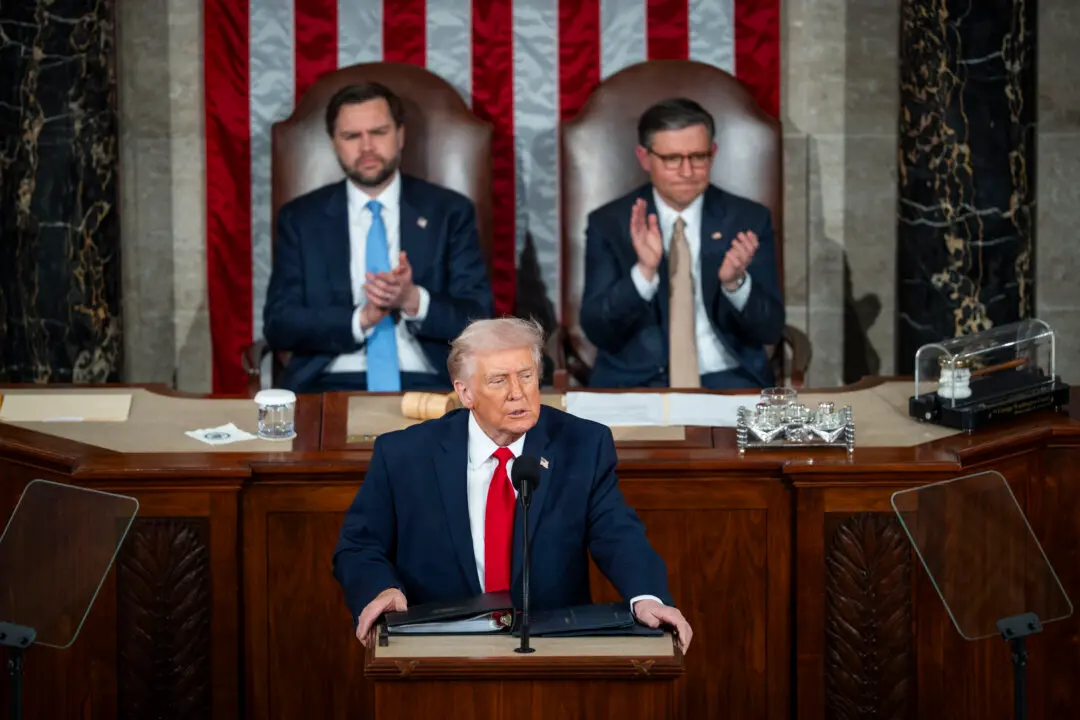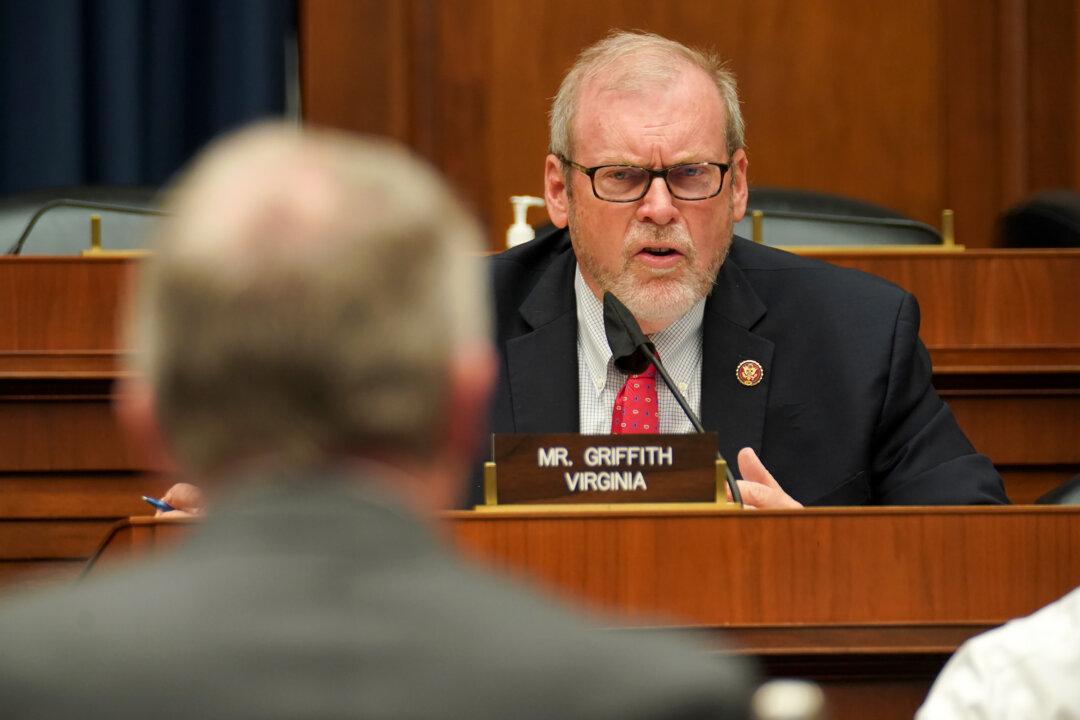FLINT, Mich.—Vice President Kamala Harris and former President Donald Trump pitched competing plans for creating auto manufacturing jobs in Michigan at rallies held just one day and 40 miles apart.
Harris promised a Flint audience on Oct. 4 that she would continue the Biden administration’s government investments in manufacturing, which she said had created jobs and new auto plants.





